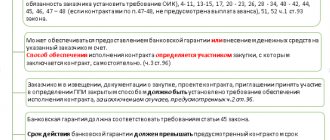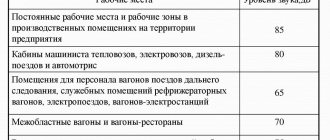Regulatory framework
All construction services (construction of buildings and structures, repairs, reconstruction) are provided on the basis of a concluded contract.
Their legal framework is as follows.
- Civil Code of the Russian Federation (Articles 722, 753, 755-756). This is a fundamental regulatory act that establishes the concept of a work contract and also contains the norms of mandatory guarantees for construction work.
- Decree of the Government of the Russian Federation numbered 812, dated August 14, 1993, on the procedure and main provisions for concluding contract agreements for the construction, repair, reconstruction of facilities for state and Federal needs. This legal act contains mandatory warranty requirements for all construction projects constructed for public needs.
- Resolution of the State Statistics Committee of the Russian Federation number 100 dated November 11, 1999. This legal act regulates the procedure for drawing up documents and claims when identifying deficiencies in the acceptance of construction projects and their operation.
- Federal Law on the Protection of Consumer Rights, which protects individuals as customers of various construction services from individual entrepreneurs and legal entities.
Attention
Based on the norms of the Civil Code of the Russian Federation, the contract agreement must be drawn up in writing, indicating the contractor’s warranty obligations.
A contract agreement is concluded between organizations to perform certain work (construction of a residential building, roof repair, installation of siding, etc.). According to it, the contractor undertakes to do it efficiently, and the customer undertakes to pay on time.
There are situations when, during the execution of the terms of the contract, equipment is deliberately damaged, expensive materials are wasted, poor quality results are provided, etc. In order to avoid unjustified expenses in their activities, the parties to the transaction assign each other the obligation to compensate one of them for losses that occurred due to the fault of the other. The contract with the contractor does not include social guarantees (vacation, sick leave).
- No. 721 – the result of the work must exactly correspond to the quality specified in the contract. Law firms can perform above this level, but not below;
- No. 722 - the agreement must necessarily specify a warranty period for work under a contract, during which their properties must not deteriorate;
- No. 723 - if the contractor performed work, the result of which turned out to be unsuitable, he is obliged to eliminate all violations free of charge or reduce the amount of his remuneration. If the customer refuses to correct the defects, he has every right to terminate the contract;
- No. 724 - the contractor must make repairs or redo the work if breakdowns and defects are discovered within the warranty period. If it is not included in the warranty obligations under the construction contract, by law it is 2 years;
- No. 725 – the limitation period is limited to one year. It is customary to begin the countdown from the moment the entire complex of work is accepted. If the contractor carried out repairs, then the period is counted from the date of notification of the breakdown;
There is GOST B 15.306-79, according to which the contract must contain complete information about the contractor, the quality level of the work, the time of provision of the guarantee, etc.
Guarantee period
The warranty period is the period of validity of the seller’s quality guarantee for the goods or services provided, during which the buyer can make claims if any defects are discovered. If the contract does not stipulate a warranty period, then according to the law, the supplier is obliged to provide goods of adequate quality for use for two years from the date of delivery, but no more than two years, unless other conditions are provided for by law.
There are general provisions governing the procedure for calculating the warranty period from the moment the goods are delivered to the buyer. There are several ways to transfer goods: delivery by the seller to the buyer, or purchase of goods at the seller’s location. In all cases, the transfer of ownership of the goods occurs at the time of its actual transfer, therefore, from this moment the warranty period begins.
The parties can agree on any warranty period, since it is not limited by law. But if the warranty period is less than two years, the buyer can make quality requirements for two years, but not after the expiration of two years from the date of delivery of the goods. In this case, due to the fact that the warranty under the contract has expired, the buyer must prove the reason for the occurrence of these defects.
Warranty period under the contract - Official information
A work contract is a signed agreement between the parties regarding the provision of a specific service (work) to the client by the contractor and the receipt of financial compensation as a result.
Like any other, a contract agreement at the legislative level is provided with a number of guarantees that are included to protect the rights of the parties.
In essence, this is the obligation of the contractor to eliminate or correct its shortcomings and compensate for losses incurred by the counterparty.
An eloquent illustration is the guarantee under the contract, which ensures security and reliability for everyone involved in the transaction.
The result of the work must meet the agreements of the parties on quality for the entire warranty period established by the contract. The guarantee under the contract for the quality of completed work applies to all components of the work result (Article 722 of the Civil Code).
Despite the existence of legal requirements for the provision of guarantees, when drawing up construction contracts, we recommend that the terms of the contract include:
- Responsibility to correct defects in work.
- The warranty period for the customer to file claims for correction of defects. The law establishes 1 year.
- Time period for completion and quality of contract work. In case of violation, the contractor will cover the losses.
- Guarantees to cover expenses incurred due to the fault of the parties to the transaction.
- Force majeure circumstances.
Keep in mind! If a defect is discovered after the agreed warranty period under the contract, performance can be demanded through the court.
A positive outcome can be expected if there is confirmation of a breakdown due to the fault of the contractor before the delivery of the project.
– the consumer sends a request to the contractor to carry out repairs and eliminate deficiencies;
– the contractor can immediately begin to correct it or, in case of disagreement or doubt, conduct an independent examination. The warranty under the contract does not apply to an item that is not subject to use.
– in controversial cases, it is necessary to refer the conflict resolution to the court.
Note! If an enterprise is declared bankrupt, third parties are allowed to fulfill guarantee obligations. But they bear obligations for the quality of repair work to the contractor.
No, the warranty period under a contract is prescribed by law and evasion of it is regarded as an infringement and limitation of consumer rights.
– free elimination of defects in the optimal time;
– proportional reduction in the cost of work;
– compensation for investments arising from the elimination of violations and shortcomings.
The contractor, in turn, instead of eliminating the deficiencies for which he is responsible, has the right to perform the work again free of charge with compensation to the customer for damages caused by the delay in performance. Then the latter must return to the performer the previously transferred work result, provided that such a return is possible.
Even if the contract itself exempts the performer from liability for specified defects, he nevertheless bears responsibility if it is proven that they arose through his fault.
From the date of acceptance of the building into operation - 2 years, unless another period has been assigned. As for real estate, civil law sets a time limit for identifying violations and is equal to five years.
Important! It is possible to increase the warranty period under a contract only with the mutual consent of its participants.
One of the effective ways of guaranteeing a construction contract can be considered the retention by the customer of some financial part of the contractor until the expiration of the warranty period under the contract.
Another side is also possible: restraining the counterparty’s property by the other party (Article 359 of the Civil Code). In other words, the creditor keeps the thing. subject to transfer to the debtor until he repays the obligation to pay it.
However, it is worth noting that in the norms of the Civil Code such guarantee retention is absent and not directly stated, therefore, without a specific indication of it in the contract, it contradicts Art. 702 of the Civil Code on mandatory payment for completed orders.
– what specific part of the payment for work performed by the contractor can be withheld;
– a specific time period giving the customer the right to withhold part of the payment,
– a condition for the unchangeable return of the retained guarantee in the event of cancellation or modification of the contract;
– the circumstances of offsetting the retained amount to cover the customer’s expenses for eliminating defects found during the warranty period.
In such situations, the court recognizes the legality of the warranty lien under a work contract, guided by the principle of freedom of contract (determined by the Supreme Arbitration Court of October 6, 2010 No. A40-91758/09-105-671).
The developer is evading the agreed guarantees, but everything has been done to fulfill them? The only way out is to restore your rights in court. The victim applies to the court with a statement of claim, in which he indicates the reasons, referring to the warranty periods under the construction contract or the law.
We suggest you read: How to draw up a deed of gift for a share || Agreement of donation of common property
The claim is accompanied by an agreement and materials confirming the customer’s attempt to resolve the issue amicably, in the event of the contractor’s refusal. And if we are talking about warranty repairs, you should attach documents certifying the full payment for the work in due time.
Important! The court may remove the contractor from the obligation to fulfill the guaranteed obligations against the customer's debt if he has not paid the entire amount stipulated by the contract.
Arbitrage practice
An analysis of the judicial practice of considering cases related to the warranty period allows us to conclude that it is recognized as legal for the customer to eliminate defects in the work performed on his own if the contractor has evaded fulfilling this duty, despite his repeated requests.
Regarding payment for work after it has been completed with omissions, the courts recognize the impossibility of returning payment and the need to eliminate defects during the warranty period. In the event that a deposit was given, it is possible to recover the difference by a proportionate reduction in the cost of the work, as unjustified enrichment.
Important! The presence of relevant expert findings confirming a precedent of violations does not at all guarantee an unconditional positive result in court.
The guarantee under the contract and the formation of its terms is an important part of the contractual relationship and should in no case be neglected. By regulating such an important aspect only legislatively, the parties lose the opportunity to protect their rights, which, in turn, leads to protracted litigation.
Example of breach of warranty
The buyer contacted the car dealership with a breakdown of the heating system in a car that was under warranty. The seller made repairs, but after some time this particular part broke again. The fan motor was replaced, the seller declared this type of repair out of warranty and demanded payment for the cost of the work. At the same time, in the service book this type of breakdown is not listed as non-warranty.
What the seller is wrong about:
- Only the following cases are considered non-warranty:
- the breakdown was caused by the buyer;
- actions of third parties, for example, purchasing low-quality gasoline;
- due to force majeure circumstances (hurricane, flood, etc.).
- This rule is enshrined in paragraph 6 of Art. 18 ZPPP. No other cases can be considered non-warranty.
- If the warranty period has not expired, the seller has the right to refuse repairs only if he can prove the presence of one of the above factors, the occurrence of which deprives the car owner of the right to free repairs.
As a rule, proof is made through an examination.
Therefore, in this situation, the buyer must make a written claim in which he demands to provide evidence that the breakdown of the blower system is a non-warranty event. According to Art. 28 of the Law of the Russian Federation, proof rests with the seller.
This is also important to know:
Accident at work: what is it, types of payments, actions of the employee and employer
If the store refuses to return the car from warranty repairs, the claim indicates a violation of the terms of warranty repairs (Article 20 of the Labor Code).
For violation of the deadline, the seller is obliged to pay a penalty (fine). A calculator for calculating penalties for failure by the seller to fulfill his obligations can be found here.
The seller is given from 7 to 20 days to consider the claim, depending on whether a quality check will be assigned.
If after this period the request is refused or there is no response, you should go to court. The statement of claim is accompanied by the seller’s response, if given, copies of the registration certificate, payment receipts, and other documents for the car.
The plaintiff is exempt from paying the state fee.
Guarantee for construction work from the contractor
Based on established practice, as well as judicial consideration of disputes under construction contracts, the guarantee for construction work from the contractor consists of two components.
- The period during which the customer will be able to safely operate the facilities, without routine and major repairs. If during this period of time the building, house, structure, or their elements lose their design features, the contractor is obliged to carry out restoration (repair) work at his own expense.
- The period during which the customer is obliged to report identified deficiencies (malfunctions) of the construction project to the contractor. It begins to be calculated from the time the defects or other damage are discovered.
Additional information
An example would look like this: The construction organization gave a guarantee for the construction equal to 5 years of operation, and indicated that it is valid for 2 years from the date of detection of defects.
After acceptance, the customer began to use the premises, but after 3 years he discovered the presence of hidden faults. If he informs the contractor about this within 2 years, then the contractor will carry out restoration work at his own expense.
If after a two-year period, then the construction organization is released from such work, and repairs are done at the expense of the customer.
What the warranty may cover
The warranty period for construction work by law applies to any buildings being erected, for example, apartment or private buildings, commercial buildings, etc. In addition, the guarantee is provided for design and roofing work.
This is also important to know:
Investigation of industrial accidents: which accidents are subject to investigation and recording
In the latter case, the warranty period for the quality of the roof can range from two to ten years. The parties have the right to set their own time frames.
Design work also has a warranty period of two years, unless otherwise provided by agreement of the parties.
It is worth remembering that five years after the commissioning of the facility, the contractor is relieved of responsibility for the quality of the work performed by him. The exception is extended warranty periods provided for in a contract or agreement of the parties.
What warranty period does the law establish for construction work?
What are warranty periods during construction? It would seem, why and why to give guarantees for construction work? Few people think that even when building a garage, a guarantee must be established in accordance with the contract or for the period established by law. What can we say about residential buildings in which people will live?
What period of construction work is considered to be the most optimal? What provisions of the legislation of the Russian Federation regulate the concept of a warranty period in the construction industry? What responsibility does the developer bear for negligence in his work and when is the responsibility removed from the developer?
Consultants work on the “PravPotrebitel” portal.
Visitors to our website can contact the duty lawyer online and receive an answer as quickly as possible.
All consultations are completely free. You can contact specialists using the feedback form.
The warranty period is most often negotiated in the contract agreement. But there are also mistakes in its composition. Provided that the warranty period for the builders’ work was not discussed in advance, this does not mean that it does not exist at all.
Several articles of the Civil Code address this topic. The period of five years is established by Article No. 756, but the terms of the agreement will be of paramount importance.
Further, article No. 724 talks about the time frame within which it is necessary to find the flaws of unscrupulous contractors:
- if a guarantee was not discussed, claims based on the results of the work can be made, provided that defects are discovered in the first twenty-four months after the delivery of the object by the customer;
- the guarantee comes into force after the customer has accepted the finished object or should have accepted it;
- If the contract specifies a warranty period and it is less than two years, the customer can file a claim with the developer after the warranty for the work performed has expired. But he will have to prove that the shortcomings were discovered after the operation of the building, but they arose before the object was commissioned.
The main idea from these articles is the following: if a defect in the contractor’s work was discovered during the warranty and at the same time proved that it was his fault for causing the damage, he will have to correct everything at his own expense.
The customer can also submit his claims for compensation for physical, property and/or moral damage. The construction organization has the right to refuse to fulfill the customer’s requirements.
You can see how independent examination works in the article on our website. Or consult the duty consultant of the Internet portal “PravPotrebitel”.
The relationship in the construction industry between the customer and the contractor is of a contractual nature and must be formalized in a legal manner. The most commonly used template is a contract agreement.
The contract has a standard form. You can view an example of a typical agreement for construction work by downloading it from our website. Its content is not strictly regulated by law.
When filling out, it is necessary to comply with the rules of civil law common to all contracts. Including the warranty period is not a mandatory clause of the agreement.
The following points must be discussed:
- the work procedure, requirements for finished construction products, payment terms are discussed in detail;
- the period within which the contractor is obliged to deliver the facility;
- amount of payment for the contractor’s work, payment procedure (prepayment, partial payment, post-payment, etc.);
- responsibilities of both parties;
- rights of both parties;
- liability of the parties for violation of agreements;
- date, place and time of signing;
- details and/or personal data of the parties;
- signatures.
The terms of warranty service, at the request of both parties, can be included in the text of the contract as a separate clause. If a guarantee is established, then it will be necessary to rely on the terms of the contract (if it turns out that the object accepted by the customer does not meet the quality requirements).
In the absence of a clause on warranty service, Article 724 of the Civil Code of the Russian Federation comes into force. In this case, the customer is given twenty-four months to discover the defects. If the parties have no claims against each other, then the warranty period for construction work is established by law for 5 years. (Article 741 of the Civil Code of the Russian Federation).
Otherwise, you will have to collect evidence that the detected defect was made during the construction process.
The limitation period, provided that the delivery of the construction project was divided into several parts, begins to be calculated from the moment the entire project is delivered to the customer.
You need to pay attention to the following points:
- improper operation of the building relieves the contractor of all responsibility;
- the construction organization may classify the detected defect as natural wear and tear of the building;
- the contractor has the right to disagree with the customer’s opinion and not to fulfill his claims.
I would like to separately note one of the responsibilities of the performer. The Contractor is obliged to comply with legislation that is aimed at preserving the environment. For violation of these norms, the performer will be held accountable. The contractor has the right to refuse work or use materials provided by the customer if nature may be harmed as a result.
A construction organization can provide guarantees on the following points:
- performing the entire scope of work in good faith and in accordance with the requirements for quality and reliability in the construction industry;
- correct assembly, installation and fastening of individual structures;
- selection of only high-quality materials for use in the construction of the ordered facility.
We suggest you familiarize yourself with: Tax deduction for education statute of limitations
The rules for fulfilling warranty obligations during the construction of a new apartment building are regulated not only by the civil law institution. The Code comes to the aid of a federal law regulating the participation of equity holders in the construction of new buildings.
In this case, unless otherwise specified in the terms of the contract, the warranty period is five years and is calculated from the moment the act of acceptance of the apartment is signed by the first resident of the apartment building. Private houses usually have a warranty period of no more than three years.
The quality of design work can be assessed within two years. Roofing warranties range from two to ten years, depending on the materials used.
In general, after the customer has signed the acceptance certificate and indicated that he has no claims against the developer, it is quite difficult to prove his negligence. And sometimes it’s simply impossible.
Therefore, before signing any papers, you must consult with specialists.
It’s even better to order an independent construction and technical examination. This will avoid mutual claims and litigation in the future.
A work contract is a written agreement between the parties, as a result of which the contractor provides certain services (or work) to the client, for which he receives payment. Like any other contract, a contract agreement is secured by a number of guarantees provided for by the legislation of the Russian Federation.
Dear readers! Our articles talk about typical ways to resolve legal issues, but each case is unique.
If you want to find out how to solve your particular problem, please use the online consultant form on the right or call
7

It's fast and free!
Warranty obligations are introduced into the contract agreement in order to protect the rights of the parties. In essence, this is the obligation of one party to eliminate the defects of the product and compensate for the losses incurred by the other party. A prime example of a warranty is a warranty on repair work.
Sample of a household contract
The warranty period under a work contract is provided by the Civil Code of the Russian Federation in Articles 721, 722, 724. The law in this aspect fully relies on a written agreement, other legal acts, or even business custom. These same articles are also responsible for the quality of work. The issue of limitation of actions is regulated by Article 725.
There are several types of contracts. This determines what guarantees can be used to protect the interests of the parties. The Civil Code distinguishes between contracts:
- domestic;
- building;
- to carry out projects and surveys;
- for the needs of the state.
Also, the issue of guaranteeing the preservation of customer benefits is regulated by the law on the protection of consumer rights, or more precisely, Article 8. The same law provides for termination of the agreement if irreparable deficiencies in the work of the performing party are identified.
Information on how to draw up a sample letter of guarantee for the fulfillment of obligations under the contract.
Here it is written how to return building materials according to the law.
This is important to know - the law on furniture guarantees in protecting consumer rights.
In the case of a construction contract, the main procedures are aimed at construction or repair work, and, as a result, the obligations become:
- Guaranteed retention of part of the customer's funds.
- Compensation for damages in case of inadequate quality of work.
- Carrying out procedures again if repairs cannot be carried out and the quality does not meet the requirements of the law and the contract.
- Warranty repairs (subject to the statutory warranty period for construction work).
The security deposit (guarantee retention) under a contract is the amount that the client retains in his account (they cannot be spent anywhere other than paying for the contract) until the result of the production is accepted. This type of guarantee is necessary so that the consumer, if significant deficiencies are identified in the work of the contractor, can use these funds to eliminate the problems that have arisen.
Additional questions
How to avoid poor-quality repairs
You can avoid poor-quality repairs at the stage of choosing a contractor, for this:
- Pay attention to the work experience of the construction company. It must be at least 3 years.
- Take the time to google reviews about your chosen contractor.
- Please carefully study the provided portfolio.
- Be sure to sign a contract.
- Refuse to pay in advance, except for the amount required for building materials.
- Take your time and explore several options before making your final choice.
It is enough to follow these simple rules and you can protect yourself from poor-quality repairs and further proceedings in court.
What construction work is not covered by the warranty?
Warranty periods for construction work are included in the contract. Over a period of time, deficiencies, collapses or defects may be identified. To exercise full rights under the warranty, it is necessary to clearly describe the requirements for the final object in the contract.
The developer cannot be held liable for warranty if the operating conditions of the construction work are violated.
When constructing a building, for example, different companies may be involved in assembly, fastening, installation and finishing. Additionally, hired organizations are responsible for performing their services if the contract between the developer and the buyer specifies the work of this company. Then the warranty period applies directly between the company and the buyer.
It is impossible to prove the guilt of construction representatives when the defects occurred due to time and normal wear and tear.
Upon the conclusion of the examination in favor of the developer, the guarantee is terminated.
Building services that have been damaged by natural disasters are not covered by the warranty.
Is it possible to refuse a warranty on construction work?
If deficiencies are discovered and reported to the contractor, the customer must determine a period for their elimination at the expense of the company, otherwise this will be regarded as a waiver of the guarantee for the services performed.
If the contractor offers a warranty period shorter than it is prescribed by law, this is regarded as an infringement of consumer rights and a violation of the provisions of Article 756 of the Civil Code of the Russian Federation.
What to do if the work was performed without a contract
A situation often arises when cooperation with the contractor was based only on a verbal agreement, but some time after the completion of the repairs, obvious defects and shortcomings were identified or the deadlines for completing the work were seriously missed.
This is also important to know:
Sample characteristics for an award: when required, writing structure, types
Without a signed bilateral contract specifying the terms of service, proving violations of the contract by the contractor will become difficult.
Free legal consultation
We will answer your question in 5 minutes!
Free legal consultation We will answer your question in 5 minutes!
Call: 8 800 511-39-66
Ask a Question
In case of poor-quality repairs, it is proven in a sitting court that the contractor performed work in the house, because only under this condition is it possible to demand compensation from him for the losses incurred, as well as the return of financial resources.
To prove an oral contract, facts are required that confirm the existence of a working relationship. For example, these are witness statements, video and audio materials, and other written sources.
The situation when problems arise with repairs when it is impossible to provide a written contract is considered difficult, but not at all hopeless. But the resolution of such a dispute is entrusted to an experienced practicing lawyer.
After purchase, pipes leaked in the apartment or a crack appeared in the wall
If you are planning to purchase a home, carefully examine the property before signing the sales contract and deed of transfer. If you find any defects, be sure to indicate them in the transfer and acceptance certificate or refuse to purchase the apartment altogether if the defects seem significant to you.
If you have already purchased a home and over time discover that there is a large crack along the wall, do not rush to carry out repairs yourself.
If we are talking about a construction defect, the construction company is obliged to carry out repair work. In practice, many companies close quickly, but in this case you can also send a claim to the selling organization.
If necessary, the company will order an independent examination to confirm the cause of the defect and identify the person responsible for its formation. You have the right to order this check yourself. If the analysis confirms the presence of a construction defect, you will be able to recover from the defendant the cost of the costs incurred for the examination.
If the seller or construction company evades the correction of detected defects, it is necessary to file a corresponding claim in court.
Roof Warranty
The warranty for building materials is based on the service life from the product manufacturer and the work of the roofers during installation. Often these two guarantees are combined, and are defined as a general period for quality control.
The conditions for quality confirmation are affected by the cost of products and bases. If the material sample is stable, the guarantee can range from 15 to 50 years. However, if the operating instructions are not followed, the warranty will expire. Especially in the case where the consumer cannot confirm that he has followed all the proper precautions for using the product.
In most cases, defects or problems with the roof occur due to incorrect installation work.
The installation warranty must correspond to the service life of the material.
If materials, their thickness and waterproof coating are incompatible, the structure as a whole may suffer. If these conditions were proposed by the buyer, the installation company must warn that in the event of failure of individual elements, the warranty for work will not be taken into account.
Under the warranty, the company must reimburse the costs of repairs or make the corrections themselves and free of charge. To do this, you must submit an application to the organization that provided the services or material.
Warranty for building materials
By law, the warranty period for building materials is established by the buyer, and can only be changed in the case of an individual purchase and sale agreement.
In order to take advantage of free repairs or installations covered by the warranty period, you must have a warranty card, a receipt for the purchase of the product or service, as well as packaging of the material, if necessary.
The uniform minimum warranty period for installation or building material is 2 years (Article 10, Federal Law-214).
Based on the warranty document, the buyer has the right to demand:
- replace building material (installation service);
- return money;
- correct the defect;
- reimburse the funds spent on repairs or installation.
Within two weeks, construction materials or installation services should begin. If the manufacturer delays the deadline, according to the law, a penalty is imposed in the amount of 1 percent of the cost for each day of downtime.
Free consultation
8 800 511-39-66Ask a question
Construction guarantee depending on the type of work
The legal concept of a construction guarantee and its terms were discussed above.
In practice, most often customers are faced with situations where contractors offer them several types of guarantees within the framework of one construction agreement:
- warranty obligations for the entire constructed construction project (mandatory service life of the building, house, during which it will meet all technical and regulatory requirements);
- warranty obligations for individual elements and structures that make up the object (a mandatory service life that allows the building, house, structure to fulfill its design characteristics);
- warranty obligations for the work performed (the period during which surface and interior finishes will meet all construction and other requirements).
At the same time, you need to understand that for each type of work a separate period of time is established, and a deadline for reporting detected defects.
Attention
Immediately after completion of construction work, the contractor is obliged to issue a letter of guarantee to the customer.
If the specified cases occur during operation, the contractor, after eliminating them, is obliged to again issue the customer a letter of guarantee for the construction services performed, with a detailed list of all costs and materials.
Normative base
The law says that warranty periods must be specified in contracts concluded between the parties. The time frame for the validity of such guarantees is specifically stated in Articles 724 and 756 of the Civil Code of the Russian Federation.
Article 724 deals with the customer's rights to make claims if he discovers serious defects within a standard period of time. It also describes at what point the warranty period begins.
According to Article 756, any customer can count on a minimum warranty period of 24 months. During this time after completion of the project, the contractors can legally make claims.
The main regulatory act here becomes the Civil Code. In particular, articles 722 and 755. In addition, provisions of the law dedicated to the protection of consumer rights are often used.
This law allows you to resolve issues related to the reception and presentation of claims. Cases where the customer is an ordinary citizen and the work is performed specifically for his personal needs are examined separately.
Warranty and non-warranty cases for construction work
Naturally, the failure of structural elements, structures, and buildings is not always the basis for the contractor’s warranty obligations.
In construction and legal terminology, there are warranty and non-warranty cases.
IMPORTANT
A warranty case means such damage and other defects that arose due to the developer’s failure to comply with the technology, the use of low-quality materials (purchased even at the customer’s expense), as well as other violations of the rules and requirements for specific construction work (for example, approved SNiP standards).
A non-warranty case means such operation of a building, house, structure, or structural components that led to their destruction, defects, and other breakdowns. That is, during operation and other actions with the object, significant violations were committed by the customer.
For your information
The fact of occurrence of a warranty or non-warranty event is confirmed by defective and other inspection reports. But if the parties cannot come to a common denominator through negotiations, a special forensic construction technical examination is carried out.
Developer's responsibility
Based on current legislation, developers bear the following responsibilities:
- civil law (in cases of violation of construction deadlines and other obligations), which is expressed in the imposition of various fines, penalties, and inflation charges;
- administrative, it involves officials of developers who committed gross violations by failing to comply with various sanitary and other standards, as well as technologies that did not entail serious consequences;
- criminal, it also involves officials of the developer, through whose fault construction, sanitary and other standards were violated, which resulted in the death of people, their injuries, as well as other grave consequences.
It should be noted right away that all civil disputes under such agreements are resolved through judicial proceedings (with the exception of administrative and criminal liability).
Additional Information
If the parties are legal entities, then their disputes are considered by arbitration courts.
If the parties to disputed relations are individuals and legal entities, then these proceedings are considered by district magistrates or civil judges.
It must be remembered that according to the Constitution of the Russian Federation, the same person cannot be brought to different (administrative, criminal) liability for the same act.








